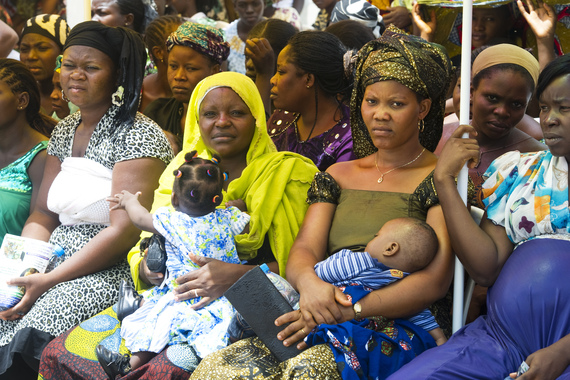I am writing today in honour of Omowumi Shonuga, a woman who joins Folake Oduyoye who I wrote about in this column, just under a year ago. These two women died in horrific circumstances following birth as a result of systemic failures within Nigeria's healthcare system, a lack of effective health education, and poor health communications. Until Nigeria's health system is fully accountable to its people, there will be more names, more stories, and more preventable maternal deaths.
Omowumi Shonuga's death and the death of her newborn baby was primarily caused by fatal delays and fatal miscommunications, starting from when she was initially turned away at the locked doors of the hospital where she attended her antenatal appointments, to the inability to find the keys for the ambulance to transfer her to a larger hospital that actually had a doctor on call, to the negligence that led to her newborn dying in a room alone, and to the final injustice - the hospital refusing to offer a blood transfusion unless her husband was willing to pay before use. On the very same day that she gave birth, both she and her newborn were buried.
Nigeria made some extraordinary gains in terms of infrastructure, technology, economics, and human rights. However, the rights of Nigerian mothers lags far behind, with maternal health in dire need of improvement. 110 Nigerian women die every day from complications related to pregnancy and childbirth, the second largest contributor to maternal mortality rates in the world. Nigeria is not alone in this -- India has made outstanding economic and technological progress in the last 10 years, but is the highest contributor to maternal mortality rates, accounting for 50,000 maternal deaths each year.
These deaths can be so easily prevented with simple measures that we know can work. Nigeria's healthcare infrastructure needs extensive investment to ensure quality care is accessible to patients whenever they need it. Nigeria needs an accountability mechanism that incorporates patient data in Personal Health Records as well as consistent birth/death registration. Nigeria's healthcare workers need clear guidelines for offering Respectful Maternity Care. Nigeria's patients need affordable health insurance that does not require them to pay before use or to buy the essential health equipment they need such as gloves, sutures, and candles. Nigeria's soon-to-be parents need an antenatal education that can help them navigate pregnancy, childbirth, and the fragile first five years of their child's life. Nigeria needs to address the social determinants of health that prevent citizens from accessing the care they need. Nigeria needs to adopt a Midwifery Services Framework, as recommended by the International Confederation of Midwives that can ensure midwives are trained and retained within the profession.
Today, we mourn the loss of Omowumi Shonuga and the 110 Nigerian mothers who have died in a single day. Tomorrow, we begin action. We cannot rest until a mother in Lagos has the same rights and chance of survival as a mother in Los Angeles or London. In September, the global community committed to achieving the Sustainable Development Goals, known as the Global Goals, by 2030. Nigeria cannot expect to meet these goals unless we commit to the road to dignity for our mothers. By putting in place the measures that we need to build the resilience of Nigeria's healthcare system, we can achieve substantial progress on reproductive, maternal, newborn, children and adolescent health (RMNCAH). This resilience will ensure that we have a system that works, continues to work even under pressure -- including within fragile contexts as seen in the plight of pregnant IDPs in northern Nigeria -- and saves the lives of women like Omowumi Shonuga and Folake Oduyeye, rather than contributes to their deaths.
